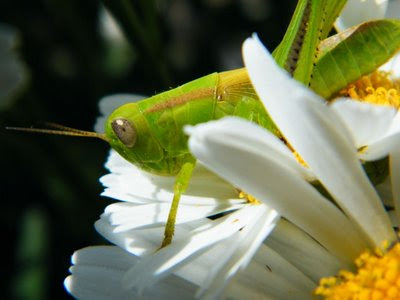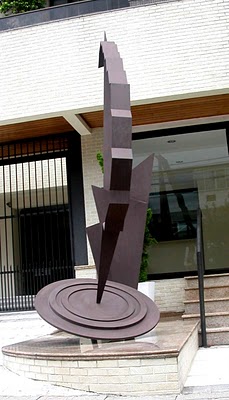Born in Montbéliard, 11 November 1952,
Jean-Michel Maulpoix has published poetry,
including A History of blue, the writer imagined,
Public Domain, and not on snow,published
in the Mercure de France. He also published critical studies on Henri Michaux, Jacques Réda and René Char,
as well as testing general poetic
(including poetry nevertheless poetry as lovepoetry and Du). Her writing, which constantly interact prose and poetry,
claiming volontiers a "critical lyricism.
Jean-Michel Maulpoix directs the quarterly journal of literature
and criticism New Series (ed. Field valley Seyssel 01420)
Alumnus of the École normale supérieure de Saint-Cloud,
modern literature, and author of a doctoral thesis on state
"notion of lyricism, he teaches modern poetry at the University
of Paris X-Nanterre where He also hosts a team of research
entitled "MonitoringoFcontemporary poetry -
------- photo Tony Elieh


"The song of the castaways
Poem extracted from « Dans l'interstice » (« Through the chinks… »
by Jean-Michel MAULPOIX, & Fata Morgana, publ., 1991
Translated by Catherine Wieder
We are the wrecked castaways of language
To and fro do we wander from one country to another, clinging on to the floated woods of our
phrases
Such are the remains of an old vessel crashed so long ago
But desire still plots whilst we ship adrift
And sculpt in those planks statuettes of sirens with blue hair
And go on singing with those very same lungs
Let us repeat the sea
Do not bring any stupid trial to the blue
The sea, clinging on to the sea
Shivers and slides on the sea
Its movements of a skirt,
its blows of the shoulders, its redundancies
And all this blue coming to us on the wide flats of the sea
We like the way the small craft passes and goes
Swaying from one wave to another, dancing its fluttering turmoil to meet the sea again
And its weird jingling sound
When music unfolds itself on the huge score of the sea
The sea mingles with the sea
Mixes its lakes and puddles
Its ideas of gulls and foams
Its dreams of seaweeds and cormorants
With its heavy blue chrysanthemums from the open sea
With clumps of forget-me-nots on the white walls of the islands
With the bruises of the horizon
With switched off light-houses
With the dreams of the unfathomable sky
The sea is a fallen blue sky
Long ago did the sky indeed lose its keys in the sea
Under which suns should we from now on lose ourselves ?
On which shoulder will we rest the fever of our wet head ?
Our dreams are birds' feet on the sand
Fragments of nails cut a few inches away from the sea
We burn on the beach huge heaps of corpses
Since such are the words with their bones and smokes
Heaps of thighbones and metacarpusses
A pyre of sweet-smelling blades of grass and crackling powders
A dry meadow would be kindled next to the sea
High flames headlong jumping among the brooms
And all of a sudden a woman's chest erected in the spluttering
Offered to that mad love
Throwing towards heaven the long moan
Of he who scorched his heart
Alone, does he walk towards her, on the narrow granite jetty
Embarking his perishable body towards nothing
She remains the huge lying shape, running towards him
Throwing towards him her flurries and petticoats
Lo ! here does he stand,
He the small man, standing up straight on the dyke with his pencil
Tightly pressed against her, but apart
Both so close and yet losing sight of each other
Pressing on to each other, their hearts badly anchored
The blue bathes a little that small body of a man
The blue catches him in its nets
A speck of flesh or chip of bashful love
A tuft of light between his palms
Stained with deep ink
Lips tightly closed by the wave
Muted, having nothing to reply to the open blue
Voiceless in the water's maze
Why can't we put out our roots in the sea
As drowned men and weeds do ?
We would easily carry on our shoulders
The never fading blue sky
Which however dreams of colours and hues
And the lukewarm wool of the foams
And the poisonous fruits of the open sea
In which no human lip did ever bite
Thus would we return to the infinite garden
We won't fill the sea with our tears
We'd rather support with our songs the efforts of the storms
Throwing their cries and leaches on to our heads
And when our watery eyes no longer see anything
We'll know better still what the sea is
The scales covering our hearts will have fallen
And our nacreous skin will at last be so white
That we would no longer fear the mad love of the sirens
Cheers to the skies of the open sea
So will we drink from chalices and ciboriums
Gluttunously will we drink the sea
No water will ever quench our thirst
We are thirsty of the salt
Our lips are greedy
In the blue sea, it's always Sunday
When gold fishes kneel
Since the days when the floodtide started carrying us
We started a liking for eternity
Water has gotten into our head
And crystal droplets in our blood
We hardly remember our fellow creatures
Whose gardens fade
And whose children grow
Our heart is so blue.
















































.jpg)










